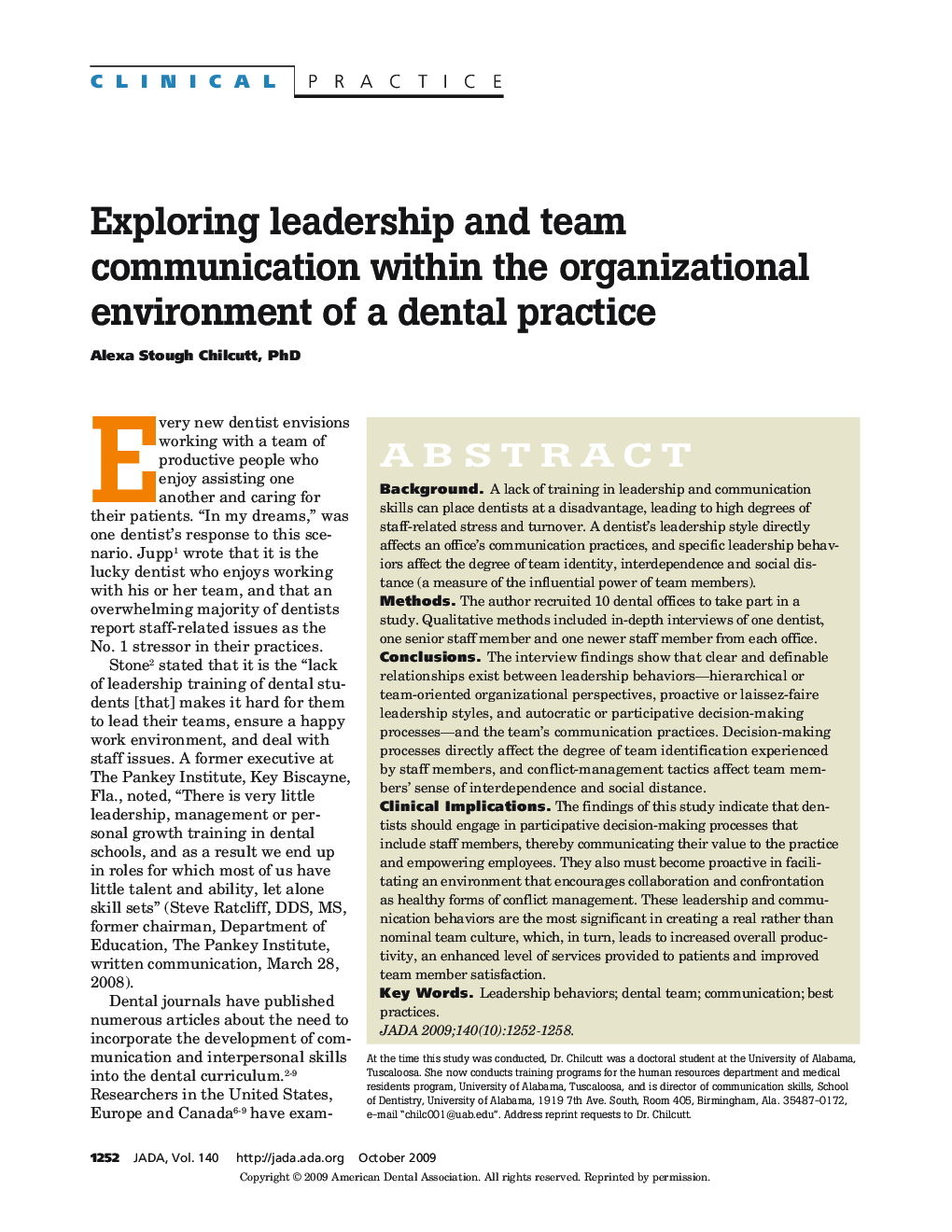| Article ID | Journal | Published Year | Pages | File Type |
|---|---|---|---|---|
| 3139048 | The Journal of the American Dental Association | 2009 | 7 Pages |
ABSTRACTBackgroundA lack of training in leadership and communication skills can place dentists at a disadvantage, leading to high degrees of staff-related stress and turnover. A dentist's leadership style directly affects an office's communication practices, and specific leadership behaviors affect the degree of team identity, interdependence and social distance (a measure of the influential power of team members).MethodsThe author recruited 10 dental offices to take part in a study. Qualitative methods included in-depth interviews of one dentist, one senior staff member and one newer staff member from each office.ConclusionsThe interview findings show that clear and definable relationships exist between leadership behaviors—hierarchical or team-oriented organizational perspectives, proactive or laissez-faire leadership styles, and autocratic or participative decision-making processes—and the team's communication practices. Decision-making processes directly affect the degree of team identification experienced by staff members, and conflict-management tactics affect team members' sense of interdependence and social distance.Clinical ImplicationsThe findings of this study indicate that dentists should engage in participative decision-making processes that include staff members, thereby communicating their value to the practice and empowering employees. They also must become proactive in facilitating an environment that encourages collaboration and confrontation as healthy forms of conflict management. These leadership and communication behaviors are the most significant in creating a real rather than nominal team culture, which, in turn, leads to increased overall productivity, an enhanced level of services provided to patients and improved team member satisfaction.
